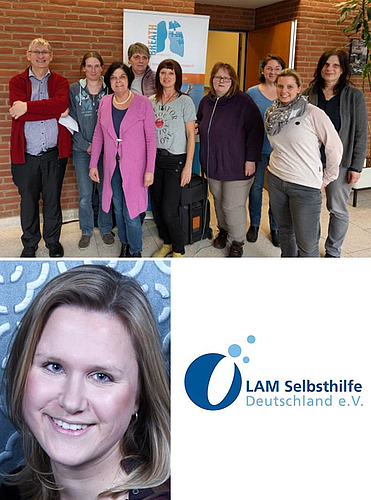Since 2014 Prof. Dr. med. Tobias Welte, Director of the Clinic for Pulmonology and Board Member at BREATH, the Hanoverian site of the German Center for Lung Research (DZL), invites the members of the Hannover Regional Group of the LAM Selbsthilfe e.V. Germany (LAM = Lymphangioleiomyomatosis) to an annual meeting at the Hannover Medical School. Every year, participants have the opportunity to ask questions to Prof. Welte in advance. For the fourth year now, the specific questions about therapy options of those present show that they are already well acquainted with their clinical picture. However, there is still a great deal of ignorance about this rare disease among general practitioners and specialists. Due to the non-specific symptoms of LAM, the correct diagnosis is usually made late. But Prof. Welte was able to calm dwon the patients: "Today we can already provide a more reliable long-term prognosis than 20 years ago. With consistent compliance and with regular check-ups, the risk of dying prematurely from the consequences of LAM is significantly lower today than it was in the 1990s. "
Currently, about 200 predominantly female patients are affected in Germany. Due to this small number, it is all the more important that the available data and information are fully evaluated. In order to get a better overview of the course of the disease, the patient collective was descriptively recorded for the roughly 50 patients of the MHH. As part of Merle Klingenberg's doctoral thesis, who is currently studying human medicine at MHH, the method of making the diagnosis, in addition to the symptoms and the course of the illness are to be examined more closely in the current evaluations. The goal is to gain a better understanding of the importance of the different treatment options, despite the low number of patients, in order to be able to provide even better long-term prognoses for the patients and to further improve the treatment guidelines that were first established in 2010.
Contact:
Prof. Dr. Tobias Welte
Telefon (0511) 532-3530

Uper Panel: Participants of the 2018 LAM Meeting with Prof. Dr. Tobias Welte Lower Panel: Doctoral student Merle Klingenberg